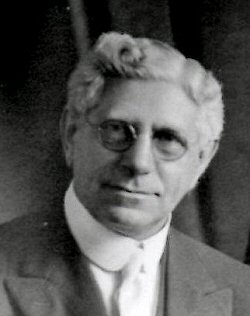A Quote by Adoniram Judson
When Paul was exhorted to be baptized and to wash away his sins, there was an evident allusion to the use of water in the ordinance of baptism, and had there been no application of water on which to ground such an allusion, we may be certain that we should never have heard of washing away sins in baptism.
Related Quotes
Our justification from sins takes place at the point of saving faith, not at the point of water baptism, which usually occurs later. But if a person is already justified and has sins forgiven eternally at the point of saving faith, then baptism is not necessary for forgiveness of sins nor for the bestowal of new spiritual life. Baptism, then, is not necessary for salvation. But it is necessary if we are to be obedient to Christ, for he commanded baptism for all who believe in him.
Baptism is just as essential to salvation, as Faith and Repentance. Without being immersed in water no man can enter into the fullness of Celestial glory: for baptism is instituted for the remission of sins; and if a person does not take the necessary steps to obtain pardon of sins, of course, he cannot be saved in the kingdom of God.
Baptism by immersion for the remission of sins is an essential covenant to make with the Lord. Faith and repentance precede this ordinance. Confirmation and the gift of the Holy Ghost follow baptism. Acceptance of these first principles and ordinances may obtain for us a remission of our sins and assure our salvation. In the ordinance of the sacrament, we regularly renew this and other covenants, and by complying with our part of the covenant, we receive the Spirit of the Lord to be with us.
Every soul that is born into flesh is soiled by the filth of wickedness and sin. . . . In the Church, baptism is given for the remission of sins, and, according to the usage of the Church, baptism is given even to infants. If there were nothing in infants which required the remission of sins and nothing in them pertinent to forgiveness, the grace of baptism would seem superfluous
I [i.e., God] have given you baptism as a gift for the forgiveness of sins, and preach to you unceasingly by word of mouth concerning this treasure, sealing it with the Sacrament of my body and blood, so that you need never doubt. True, it seems little and insignificant that by the washing of water, the Word, and the Sacrament this should all be effected. But don't let your eyes deceive you.
The Church was redeemed at the price of Christ's blood. Jew or Greek, it makes no difference; but if he has believed, he must circumcise himself from his sins [in baptism (Col. 2:11-12)] so that he can be saved . . . for no one ascends into the kingdom of heaven except through the sacrament of baptism . . . "Unless a man be born again of water and the Holy Spirit, he cannot enter the kingdom of God"
From what cause the rite of baptism first proceeded is not expressed formally in the scripture, but it may be probably thought to be an imitation of the law of Moses concerning leprosy, wherein the leprous man was commanded to be kept out of the camp of Israel for a certain time, after which time being judged by the priest to be clean, he was admitted into the camp after a solemn washing. And this may therefore be a type of the washing in baptism, wherein such men as are cleansed of the leprosy of Sin by Faith, are received into the church with the solemnity of baptism.
And each one is a partaker of this spiritual origin in regeneration; and to every one when he is re-born, the water of baptism is like the Virgin's womb; for the same Holy Spirit fills the font, Who filled the Virgin, that the sin, which that sacred conception overthrew, may be taken away by this mystical washing.






































